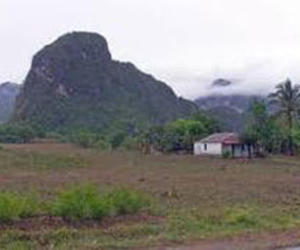Cuba a viable market for Texas agriculture
- Submitted by: manso
- Business and Economy
- 03 / 05 / 2011

Blair Fannin, Texas AgriLife. Mar. 4, 2011. U.S. food, agriculture and forestry exports to Cuba reached $361 million in 2010, and while down 31 percent from the previous year, Cuba remains a viable market for Texas, according to a Texas AgriLife Extension Service economist.
Dr. Parr Rosson said that Texas businesses are well positioned to compete in Cuba because of the quality of products and proximity to the market. In some years, the U.S. supplies the majority of food imported by Cuba, he said.
Corn, wheat, rice, meat, poultry, cotton and forest products have a potential market in Cuba.
“Processed foods have made inroads in the travel and tourism sector, resulting in more exports in some years,” Rosson said. “New travel rules have made it easier for Texas producers and food exporters to go to Cuba on business. Increased demand by international travelers and the Cuban population will require more products to enter the country and create more opportunities for those who produce agricultural goods in Texas and across the country.”
Rosson and other experts will be discussing these trends and other issues at a March 31 workshop in Houston. The workshop will be held at 16925 Northchase Drive and is co-sponsored by the Texas-Cuba Trade Alliance, the Greater Houston Partnership, AgriLife Extension and the International Transportation Management Association.
“The Texas-Cuba Trade Alliance has experts to answer most questions about exporting to Cuba,” Rosson said. “For the first time, the workshop will examine oil-spill mitigation and safety, should more drilling occur off Cuba’s coast.”
Rosson said the workshop will help Texas businesses, including farmers and ranchers, learn how to export food, forestry and agricultural goods to Cuba.
“Many may not know that it’s now legal to export food, agricultural goods, lumber and medical products to Cuba,” Rosson said. “This workshop will present a broad view on how to do business with Cuba, new U.S. travel policy and what sectors are experiencing export growth.”
Topics and speakers include market potential in Cuba, Jorge Bolanos, chief, Cuban Interests Section; licensing and doing business with Cuba, Cynthia Thomas, president, TriDimension Strategies; new developments in U.S. /Cuba policy, presented by a Port of Houston representative; and oil drilling safety issues, Dr. Lee Hunt, president, International Association of Drilling Contractors.
Ernest Bezdek, director of trade development with the Port of Beaumont, will provide an overview of trade missions to Cuba during lunch. Registration for both the workshop and luncheon is $65 if paid by March 14 and $80 afterwards.
Source:http://southwestfarmpress.com/markets/cuba-viable-market-texas-agriculture
Comments